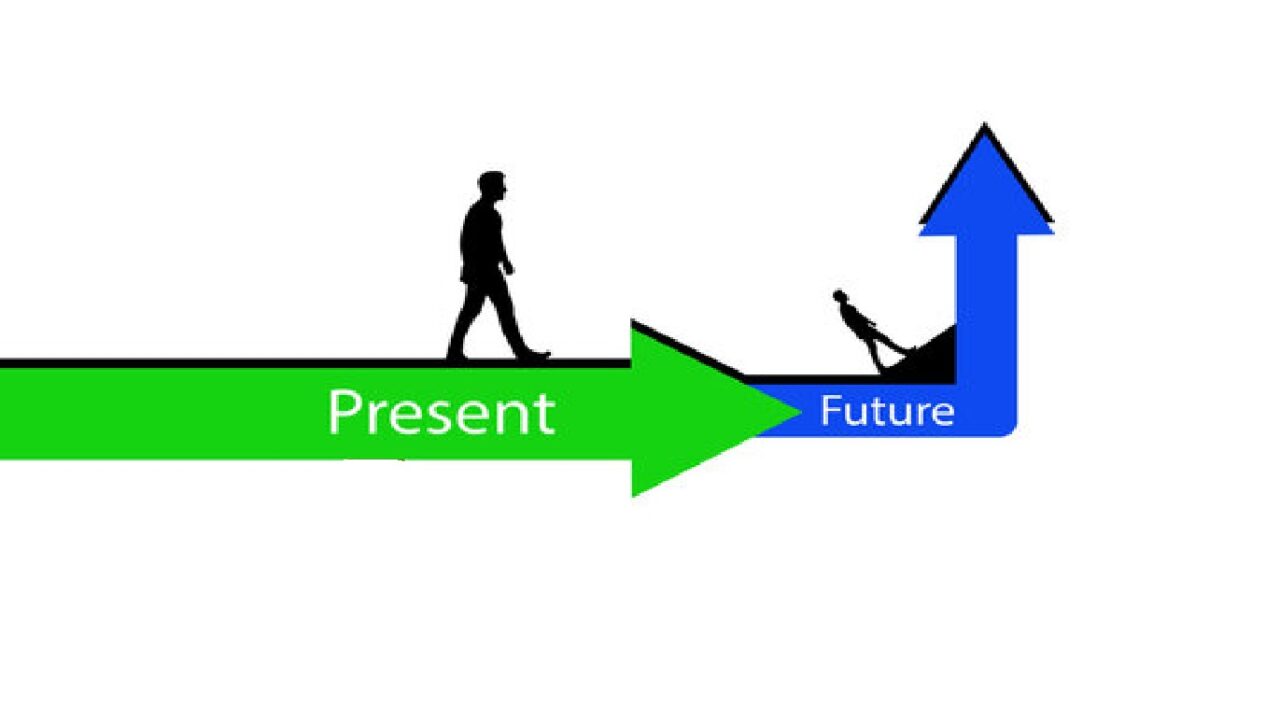Bible.org Rev 22:12 “I am coming in the Greek is a present tense verb. It is what we call a futuristic or prophetic present. This is used of an event which is so certain that it is regarded as already in the process of coming to pass.”
Word Biblical Commentary, 2Pet 3:11 our author uses the present participle λυομένων (lit. “being dissolved”) with future sense (other likely NT examples of the present participle with future sense are Matt 26:25; Luke 1:35; John 17:20; Acts 21:2-3; cf. Moulton, Grammar 3, 87). It’s a “very common construction in Aramaic, known to the Greeks but especially with the perfect participle.” Lagrange, S. Matth. XCI.
For future judgment:
- John 3:36b ”whoever does not obey the Son shall not see life, but the wrath of God remains on him.”
- Matt 3:10 “The axe is already laid at the root of the trees; therefore every tree that does not bear good fruit is cut down and thrown into the fire.”
- Matt 23:38 “your house is left desolate“;
- Matt 26:28 “this is my blood, the blood of the covenant, that is poured out for many for the forgiveness of sins.”
- Eph. 5.6 the wrath of God “has come upon” the disobedient; cp. Rom 1.18 “The wrath of God is being revealed from heaven”; 1Thess 2:16 a reference to the future “coming wrath” (cp. 1Thess 1:10);
- 1Cor 10:11 “the end of the ages has come”;
- 2Pet 3:11 “all things being dissolved”
For the coming kingdom.
- John 3.36 “anyone who believes in the Son has eternal life,” i.e., of the kingdom age to come.”
- Matt 12:28 “the kingdom of god has come upon you”;
- Matt 23:13 “are entering the kingdom of heaven”;
- John 17:20 “for those believing”;
- Eph. 1.14 The Holy Spirit is the guarantee of “our inheritance,” cp. Eph. 5.5 no disobedient person “has any inheritance“;
- Heb. 6:12 you “are inheriting the promises”;
- Rev 5.10 some manuscripts “they are reigning“;
For the Messiah: A Layman’s THEOLOGY, James Clark, p 93.
“The prophecies generally considered to apply to Jesus in Isa 9 and Isa 53 are couched in all three major tenses – past, present, and future.”
- Isa 40:3a “a voice is calling”;
- Isa 53:2b “he has no stately form or majesty that we should look upon him”
- Isa 53:5b “by his wounds we are healed“;
- Isa 63:1 “Who is this who comes from Edom? He is majesty, marching”;
- Matt 26:25 Judas is “betraying” Jesus;
- Luke 1:35 “the one being born”;
-
John 14:3 “Where I am“; cp. John 7:34, 36: “Where I am you cannot come.”
For the resurrection from the dead:
- John 5:25 resurrection is so certain for Christians, that Jesus says “an hour is coming and now is [here].” This is in line with John’s’ style and language of using the present tense with a future sense, similar to the so-called prophetic perfect, past tense of prophecy. In other words, examples of the “as good as done” form of prophetic speech. Cp. John 4:23 the Samaritan woman “the hour is coming and now is [here]”; ref. to Pentecostal, outpouring of the spirit, the Temple or holy places no longer needed; John 16:32 “the hour is coming, indeed it has come [past tense], when you will be scattered”;
- 1 John 2:18 “this is the last hour,” and “many antichrists have come.” NOTE the tense structure of Old English only had two tenses (present and past) some of which survives today, e.g., “I return to England next week.” “I am shopping tomorrow.” These are similar examples of a present tense with a future sense.
All 3 tenses:
- Hebrew 8:13 “He has made the first one obsolete [past]; and what is obsolete [present] and aging will soon disappear [future]” all from the perspective of when the words first spoken by God through prophet hundreds of years earlier.
- John 5:24 “Very truly I tell you, whoever hears my word and believes him who sent me has eternal life [present tense] and will not be judged [future] but has crossed over from death to life [past tense].”
- Rev 17:8 “The beast that you saw was, and is not, and is about to rise from the bottomless pit and go to destruction.”




